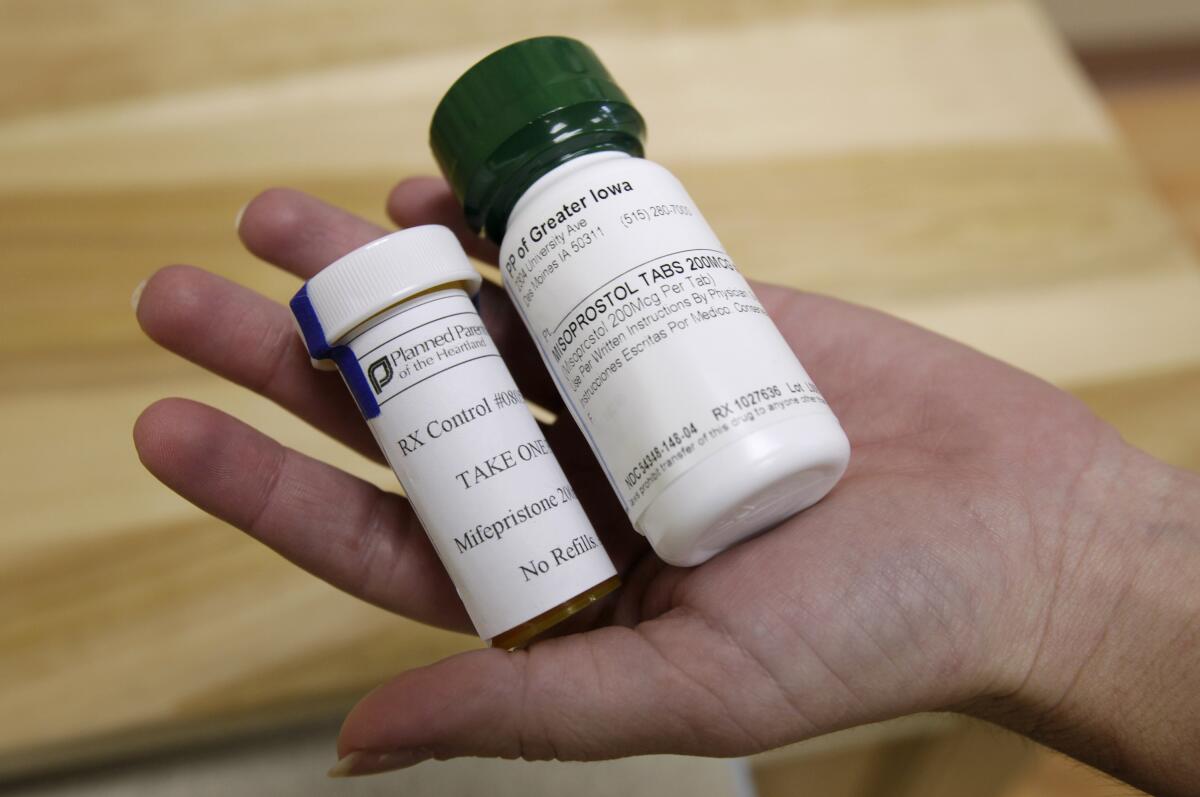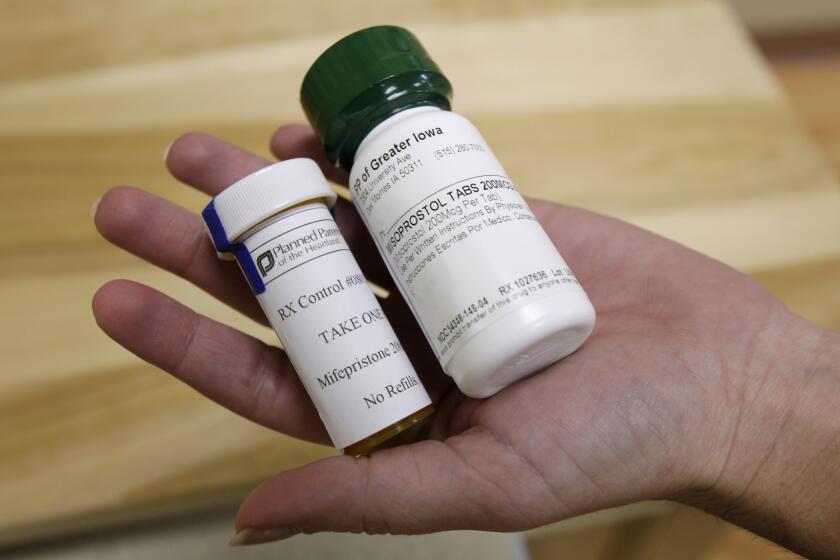Editorial: The FDA’s decision to allow abortion pills to be mailed won’t help if you live where it’s banned.

Finally, the U.S. Food and Drug Administration made the long overdue decision last week to drop the requirement that abortion-inducing medication be dispensed in person by a healthcare provider at a medical facility. The American College of Obstetricians and Gynecologists, reproductive health experts and abortion rights supporters had urged the FDA for years to lift restrictions on the safe and effective two-drug regimen that has been available in the U.S. since 2000 and is a popular method of abortion during the first 10 weeks of pregnancy.
This means the pills can be obtained after an online consultation and through the mail, which increases access for everyone, particularly for people who may be lower-income or don’t have child care or flexible jobs that allow them time to get to a clinic. Consultations with a provider before getting the pills can be done via telehealth and so can any necessary follow-up appointments. But it’s no substitute for the protections of Roe vs. Wade, which may be overturned or substantially weakened by the Supreme Court.
The FDA explains on its website that it permanently modified its requirements “to reduce burden on patient access and the healthcare delivery system and to ensure the benefits of the product outweigh the risks.”
In a medication abortion, a pregnant person first takes mifepristone, a drug that blocks the hormone progesterone, which is necessary for a pregnancy to continue. Then, generally one to two days later, the person takes misoprostol, which causes the uterus to contract and expel the fetus. The second drug, misoprostol, is used for various medical reasons and is available from pharmacies. The first drug (which is also given to treat miscarriages) is tightly regulated because it is the only medication registered with the FDA to induce abortion. The FDA had allowed people to take the drugs at home or wherever they choose. Now the FDA isn’t forcing them to go to a medical facility first to pick them up.
U.S. health regulators are lifting long-standing restrictions on how women obtain the abortion pill.
In addition to waiving the requirement for in-person reception of the mifepristone, the FDA said pharmacies could dispense that medication provided they are certified by the drug’s manufacturers. No doubt, the drug will continue to be dispensed via certain mail order pharmacies already certified to send it out. Whether brick-and-mortar pharmacies will get certified to provide the drug is unclear right now.
The inescapable fact is that the landscape for abortion access is bleak at the moment. There are 19 states that have laws on the books requiring that a clinician providing abortion pills be physically present to hand over the medication. So the FDA change in rules won’t have any effect on those states. And in eight of those states, the person getting the pills must take the first course in the presence of the health provider. Meanwhile, the state of South Dakota has proposed regulations that would require both drugs be taken at a clinic.
None of these restrictions are anything more than attempts to make it as arduous as possible to get a first trimester abortion.
And if the Supreme Court overturns Roe vs. Wade or severely limits its protections, about half the states in the country are expected to ban abortion. If that happens, even mailing abortion medication pills prescribed by a doctor out of state will most likely be prohibited in those states. Getting abortion pills would require a trip to a state where they are allowed or from pharmacies not based in the U.S. The FDA cautions against doing that, although some reproductive health experts say that for the most part, using medication from outside the U.S. is not risky.
But the point is no one should have to go to such lengths, and without the guidance of a healthcare professional, to obtain a legal medication that has been approved by the FDA.
If Roe is overturned, pregnant people may not have to resort to “back-alley” abortions thanks to medical advancements. But they still will face difficulty and potential criminalization if they want to end their pregnancies, said Elisabeth Smith, the director of State Policy and Advocacy for the Center for Reproductive Rights.
The possibility of women being prosecuted for having an abortion or for ordering pills online from a pharmacy — anywhere — is horrific. No one should have to risk incarceration for exercising control over their own bodies. But that’s the world we are headed into if Roe vs. Wade is overturned.
More to Read
A cure for the common opinion
Get thought-provoking perspectives with our weekly newsletter.
You may occasionally receive promotional content from the Los Angeles Times.











